The intersection between time and room

Salsa af Stavsnas
Ellinor Ristoff Staffan Ehde
Sun 19 Oct 2014 02:01
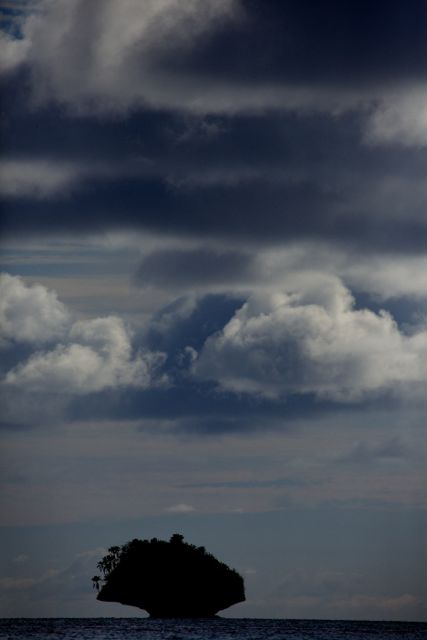 Some have asked how bad is it in Suva? We have just
been here a week and I'm not the one to tell you how bad or good it
is.
Since the coup in early 2000 the country has been
blacklisted and that in turn has brought them new "friends". China took the
opportunity and stepped up their activity as the commonwealth left them in the
cold. Fiji lost big incomes and big aid programs, but they are now hoping
to be back in the light as they just had a democratic election. So far I have
not heard any complaints about that election. Politically the biggest problem
they are facing is probably the balance between Melanese and Indian people.
England brought loads of Indians to work on the sugar cane farms. As the Indians
are not allowed to own land in Fiji (it can only inherited within the Melanese
families) they have become very successful in business. They keep their Indofiji
culture strong and in some places you really feel like you are in a better part
of India. As the indian population has grown and been progressive they also
voted themselves into parlament and that brought the military coup to action.
The Melanes fear the Indians can change law about owning land etc. Well this is
a miniature of a question that can arise in any democratic country today. The
problem Fiji encountered after the coup was that many successfull
Indians took their wealth and left the country leaving it in even more
problems. My feeling is that today both parts live next to each other, if not in
harmony, they are probably dependent on each other.
The other big challenge for Suva I think is the
segregation, and after being on Fulaga for one month we can see things from
another perspective (I think). Fiji is not the only country in the world that is
facing a big movement from countryside to city, there are predictions saying we
will live in megacities and that brings the ebola question to life.
But thats not for us to discuss, we think the eyes
of the beholder is more interesting, what etnocentric view you are taking when
looking at people moving in from the country side. I think we can transfer that
to any imigration where there is a class journey involved.
Today the kids and I took a walk in the
neighbourhood, a walk that could have been frightening if we had come from
Sweden yesterday. We would have seen these poor built houses where they make
food over open fire and all the "primitive" things that surrounded the almost
naked kids and their parents in dirty T-skirts and trashed shorts.
But what makes this place different from Fulaga is
that they have only transfered their way of living from an island to a cramped
place outside a crowded city. That'¨s where the problem starts, in Fulaga they
have exact the same building on white sand, in a clean environment, not a car in
sight and there is food to pick or grow if you just want to bother doing
that.
Here the houses are surrounded by paved asphalt
with traffic going to the airport in Nada, they try to grow some Kasava in the
ditches and the "rich" driver in his big city jeep just opens his window so much
he can throw out a coca cola bottle, then he closes it again to keep the cool
air inside. That empty bottle lands in the kasava and makes everything look
sad and dirty.
But who is actually providing the
dirt?
The eyes of the kids and adults that live in the
shed go to the big black shining car and the guy with his branded sunglasses and
they wish all to be where he is. It all looks so comfortable, like a UFO passing
in 100 km/hour. So coool.
I do not mean to tell you whats right and wrong but
it is interesting to change perspective sometimes. If the earth would be hit by
a meteor or if Yellowstone would have it's blast you can ask yourselfe who has
the best tools to survive; us needing a fridge or them who know how to find food
on the ground.
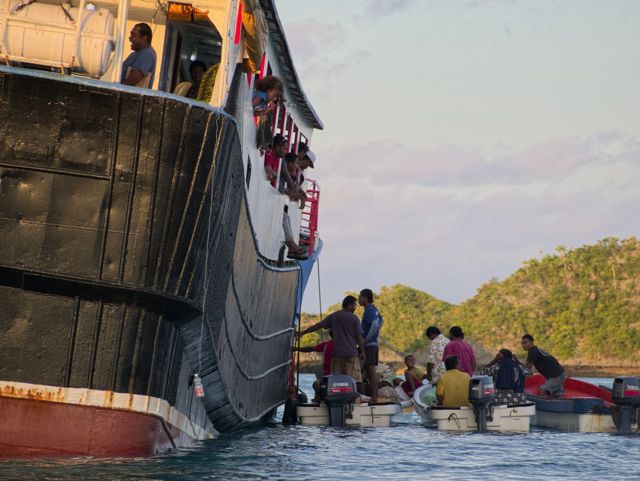 The monthly supply ship coming to Fulaga, cargo and
people are all brought on board with long boats from ashore,
heading
for Suva.
Suva affects the islands more than the islands
affect Suva, the reason I think is that success is measured by commercials, ads
and news, all brought to the islands slowly to start with but at a faster pace
every day. Now Fulaga got solar power, next thing is that they can buy
themselves a TV and some have one with a bunch of DVD:s (no reception other than
satellite there).
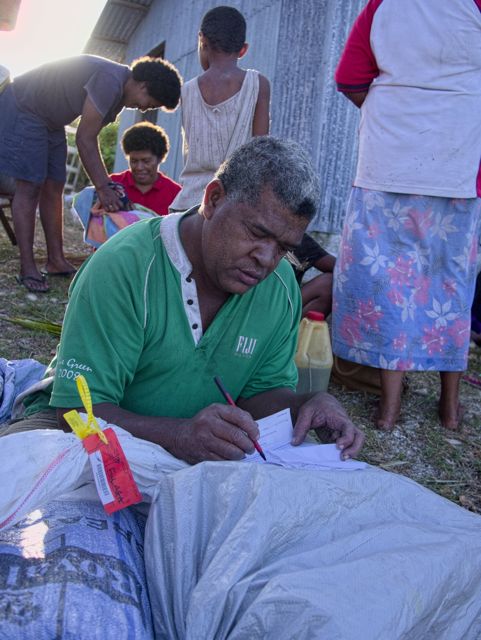 Net, the mailman, checks the amount of mail sacks
while the village people take food themselves to the ship to
deliver
to relatives in Suva. Behind him a new born just
came off the ship with his mother and is welcomed to the village.
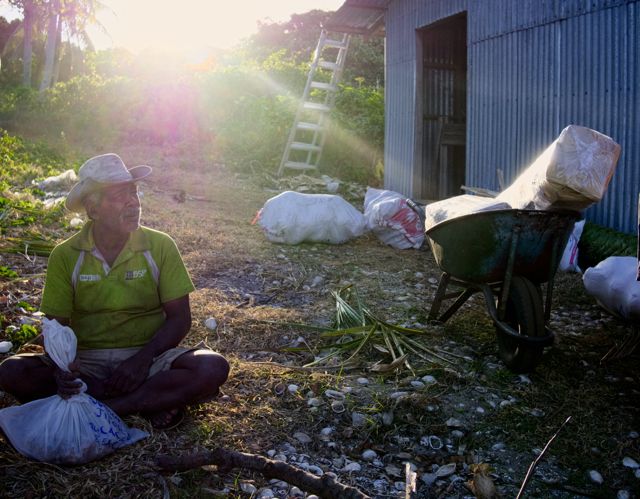 One of the elderly watches the ship being filled
with younger people as the sun sets on Fulaga. Next to him is hte
only
vehicle on wheels on the island, the wheel barrel,
called Barra in Fiji
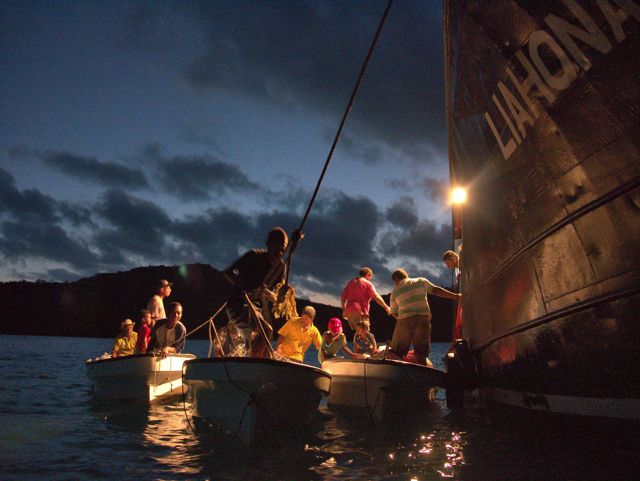 As youngsters climb on board the ship to Suva the
journey is more than a physical one, it is a hope to be successful and to get
away from the elderlies power on their life. In the village there is altruism
and they have seen something else on the horison.
In Suva they will find a huge unemployment and
their 8 years in school insufficient other than hard earned money from hard
physical work. I think the unemployment is 7 out of 10 among 25 year olds
in Suva.
Our walk in the neighbourhood her in Lami, outside
Suva gave us a good insight in our own brain and how we perceive things, as we
greeted the people like we did in Fulaga- with a smile and BULA!, they looked at
us, smiled back and yelled BULA!
To them we are white skinned palangis that come
from another world, or another island on our blue planet.
We are all humans coming from that same little
group of 10000 people that were almost extinct at one time, but managed to
survive and spread thoughout the world, and now we are close to 9
billion!
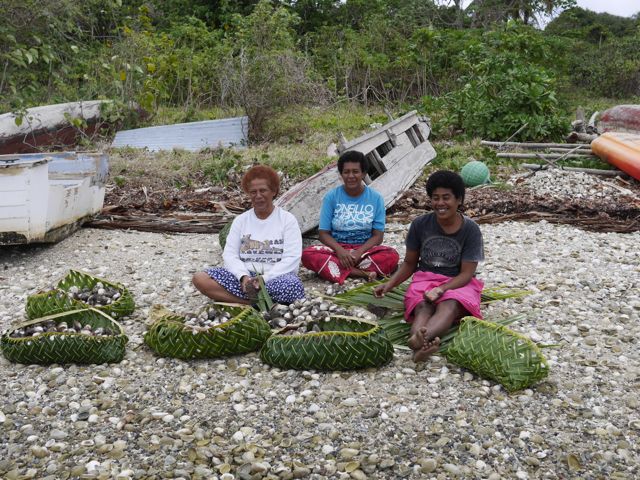 Will the clams last?
|